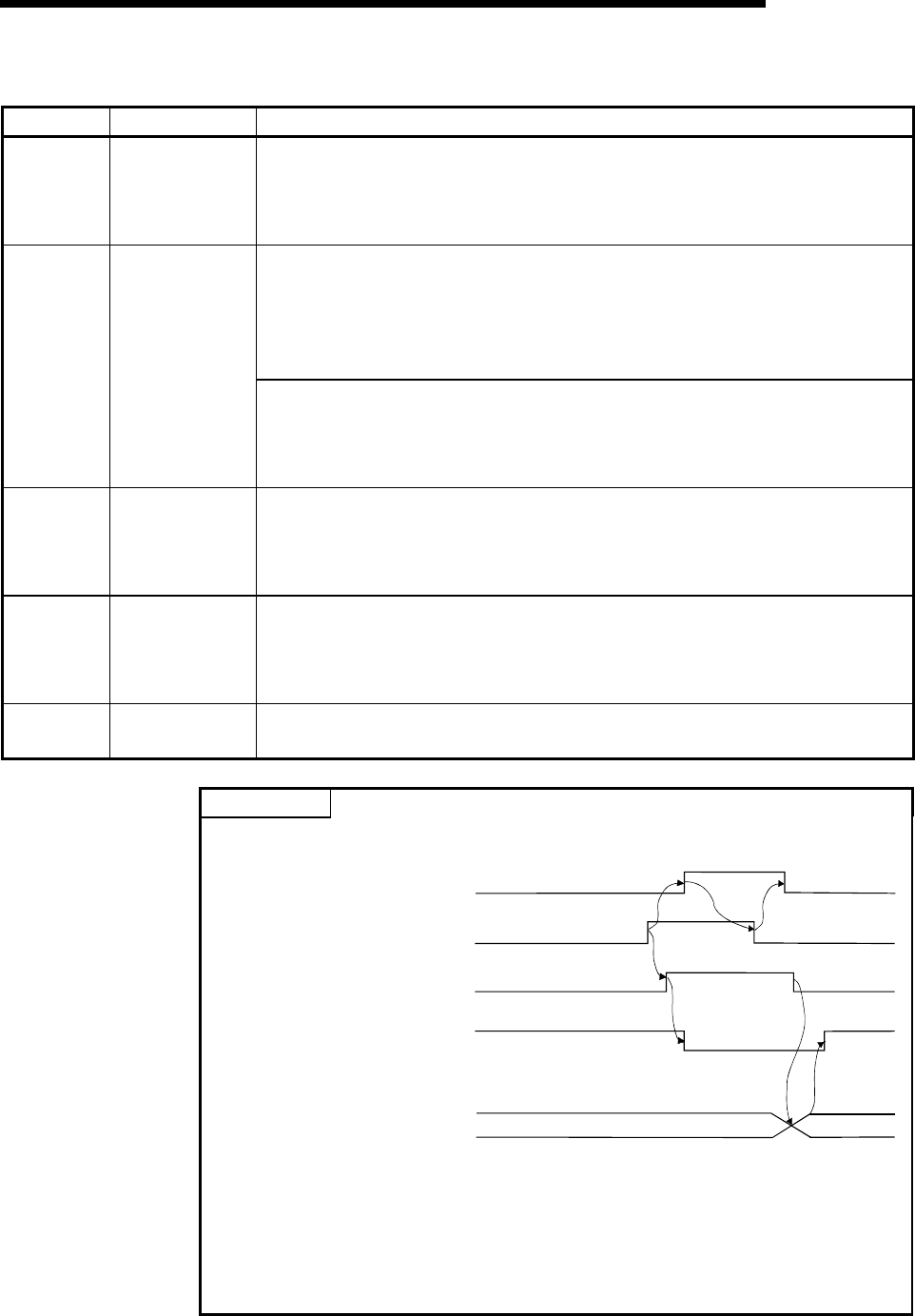
3 - 16 3 - 16
MELSEC-Q
3 SPECIFICATIONS
(2) Output signals
Device No. Signal name Description
Y9
Operating
condition setting
request
(1) This turns ON when A/D conversion is enabled/disabled, or when averaging
processing specification, the settings for the average time or number of times (when
averaging processing is specified) is enabled.
(2) See the X9 column for ON/OFF timing.
[In offset/gain setting mode]
(1) This turns ON when the value for the adjusted offset/gain settings are registered in
the A/D converter module.
(2) See the XA column for ON/OFF timing.
See Section 4.6 for offset/gain settings.
YA
User range write
request
[In normal mode]
(1) This signal turns ON when the user range is restored.
(2) Refer to the field of XA for the ON/OFF timing.
Refer to Chapter 7 for user range restoration.
YB
Channel change
request
(1) This turns ON when changing the channel for which offset/gain settings are to be
performed.
(2) See the XB column for ON/OFF timing.
See Section 4.6 for offset/gain settings.
YD
Maximum value/
minimum value
reset request
(1) The maximum and minimum values stored in buffer memory addresses 30 to 45
(Un\G30 to Un\G45) are cleared by setting the maximum and minimum value reset
request (YD) to ON.
(2) See the XD column for ON/OFF timing.
YF Error clear request
(1) This turns ON when a write error is cleared.
(2) See the XF column for ON/OFF timing.
POINT
When the User range writing request (YA) is turned ON in the normal mode with
A/D conversion enabled, the A/D converter module restores the user range.
Offset/gain setting mode flag (XA)
User range writing request (YA)
User range restoration processing
A/D conversion completed flag
(Buffer memory address 10: Un\G10)
Digital output value
(Buffer memory addresses 11 to 18:
Un\G11 to 18
)
During restoration
Restoration
completed
During user range restoration: A/D conversion stop, A/D conversion completed flag
(buffer memory addresses 10: Un\G10) OFF, digital
output value held as previously
After user range restoration: A/D conversion resumed (when user range setting is
used, A/D conversion is resumed at the restored
offset/gain setting value.)


















